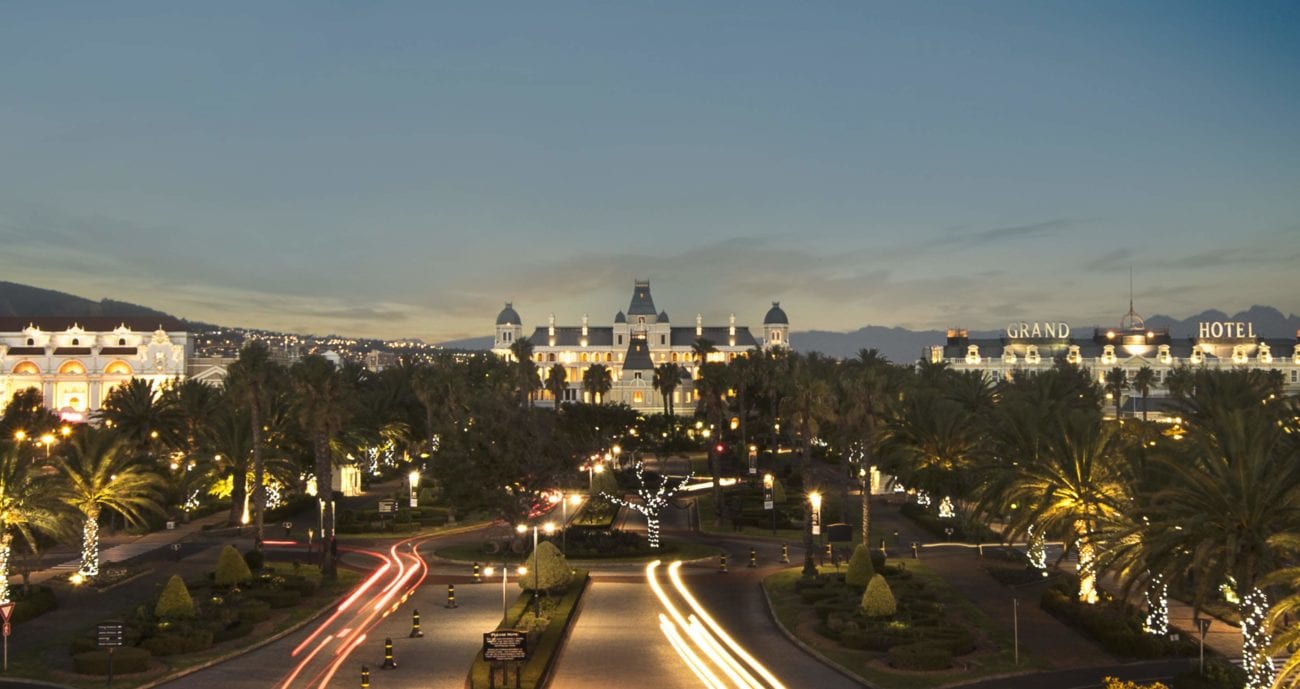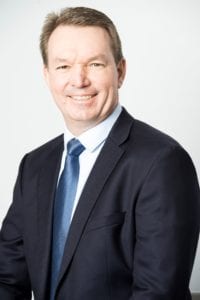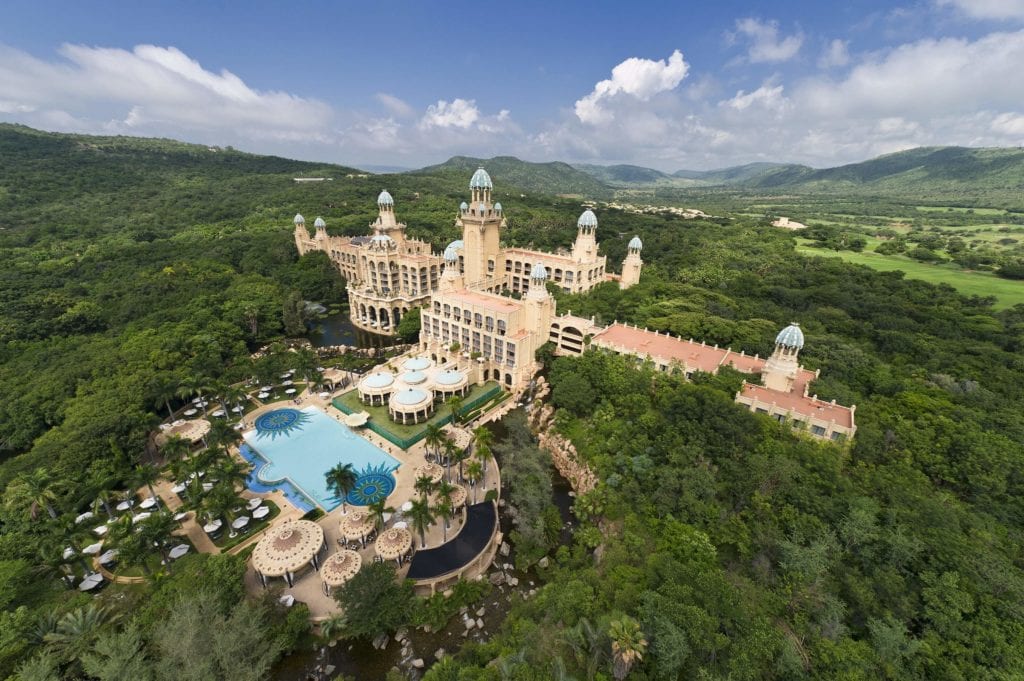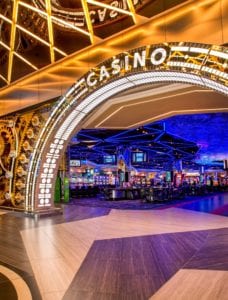Sun International plots its post-pandemic path

“The year 2020 will stand among the toughest years in Sun International’s history,” said Anthony Leeming, in the operator’s annual report.
That’s putting it lightly. Novel coronavirus (Covid-19) forced operator to close its casinos from 27 March until July. Sun City did not resume trading until September 2020, while The Maslow Sandton and The Table Bay hotels only began operating again October and November, respectively.
Revenue for 2020 therefore plummeted 48.6% to ZAR6.09bn (£314.6m/€364.6m/$444.1m), while the business swung from a ZAR1.05bn profit in 2019, to a ZAR2.42bn loss for the past year.
This has prompted a wholesale reshaping of the business, which was already wrestling with high debt levels to contend with prior to the pandemic.
A rights issue raised ZAR1.20bn, while its Latin American subsidiary, predominantly in Chile but stretching into Argentina, Colombia, Panama and Peru was sold to Nueva Inversiones Pacifico Sur Limitada for US$160m.

Lockdown was also used to rethink how the core South African business was run, Leeming says.
“We looked very hard at the business, to see what we could do better, and how we should move forward post lockdown,” he explains. “We focused on enhancing our Most Valued Guest (MVG) programme; we reviewed our marketing, our staffing structure, made changes in a number of areas such as our VIP offering. We also had a look at our various systems and we announced a change to Playtech’s Neon system.
“So we’ve done a lot to steady and improve our business; as at the moment we’ve still got restrictions, including having machines off, dividers between table players and restricted capacity. It’s not the best environment but we’re doing okay considering the restrictions.”
Necessary pain
This retrenchment exercise has left the business well-positioned to grow when the vaccination roll-out and Covid-19 restrictions are eased, Leeming argues. For example, the business’ debt balance for the start of the year stood at ZAR13.33bn. This has been whittled down 42.4% to ZAR7.67bn by year-end.
This has at least allowed the the business to plan its next steps, aided by a revamped marketing strategy, and an “elevated” loyalty programme in MVG, aided by new events such as baccarat tournaments.
He also credits his employees, working on salaries reduced to 40%, for “taking huge strain” during the pandemic. That prompted management to look to ramp up staff communication, to keep them informed as to what was happening across the company.
“We communicated a lot more and held roadshows to meet with them. We shared what was happening with them which created enormous loyalty from staff because they then understood the issues.
“So staff has been a key focus for us as if we look after them, they will in turn look after our customers. In this way we’re building a strong culture of care and involvement – it’s critical for the future.”
He argues that without taking such steps the business would have struggled to continue operating. Staff, he points out, remain on reduced hours, but if staffing structures had not been amended, Sun International would have struggled to pay them at all.
Retrenchment to expansion
Increased market share in Gauteng and KwaZulu-Natal point to the success of this renewed focus, as not only has its share grown, but it has been maintained since. This is down to that “elevated” customer experience, he says.
“If you want to beat your competitors you have to gain market share, as they are trying to do the same thing, so how do you differentiate yourselves with casino games when one game of baccarat is the same as the next?

It’s about creating that elevated customer experience, the food and beverage offering, it’s all the elements that goes around the land-based gaming operation,” Leeming says. “We put significant focus on elements such as these.”
This is aided by a strong sportsbook offering, powered by Kambi. SunBet has done “extremely well”, Leeming says, with 2020 results only just dipping below 2019’s total – despite the past year having “literally no sport” for three months.
“It’s come back strongly and continues to grow. We’re also spending more on marketing to grow market share.”
This comes as part of an ongoing proliferation in online sports betting, as well as other alternative gaming products such as lucky numbers of live dealer games. SunBet, Leeming points out, is predominantly a top-end site, for high spending customers, but the focus going forward will be to target market share at the lower end.
“At the moment, I think the lower end does better in retail, but the shift online has been quite rapid, especially with payment mechanisms through vouchers,” he explains. :What it means is that you don’t have to have a bank account – there are alternatives.
“Access is therefore changing; we are pushing a retail footprint, with sports betting sites in our properties, but our push is more through a franchise model, though the LPM outlets, and that is how we’re going to build that mass market proposition. There is more volume, less volatility and pretty good revenue available there.”
Is online inevitable?
That, of course begs the question – what of igaming?
Leeming is careful to point out that the brick-and-mortar sector is a better source of jobs and investment than online. However, he argues that having a presence across both channels would help Sun International gain a clearer view of customers, and allow it to better protect them by fully tracking spending.
And like its peer in the South African market, Tsogo Sun, which has already voiced its support for igaming regulation, Leeming would be supportive of any action on the part of the government, after years of speculation.

“We’d be very happy to move into online gaming,” he says. “Even if there could be some cannibalisation, there’s always going to be space for land-based.
“There would be very good cash generation opportunities but one of the key things for us is that, as land-based operators, we should get the online licences. We’re the ones that invest in the market, so online licences really should be reserved for us.
“It remains to be seen whether legislation comes, but we will push for it.”
International expansion may also become an option once again. Sun International’s Nigerian operations, that were marked for divestment, ultimately opened again in September last year.
However, this is more likely to be online rather than through property development, he adds.
“The banks are still cautious, so the capacity to expand is just not there. We see ourselves pushing more into the online space – LPM and alternative gaming.
“Big casinos have worked really well in South Africa, but not in too many other countries in Africa, so I think we are going to push a little harder for the online space.”
This, he argues, is a different kind of expansion, more centred round marketing than capital investment. That leaves more room for error, he says: “If it doesn’t work you can switch it off and try with a new product.
“It’s a different market, and we know we have a good product and a good brand that we can take forward,” he continues. “That’s definitely where we will focus our growth, rather than the big green field projects.
“We will look at these more on the hospitality side. We are certainly considering a few opportunities, especially with our Vacation Club product which is more targeted at the leisure market, and has proved to be very resilient.”
Ultimately aggressive growth is not on the cards, with the focus instead on “more strategic positions”.
That reflects the fact that not only has the industry weathered a particularly difficult 15 months, but the fact Covid-19 is not yet consigned to the past. Sun International’s properties, it should be noted, remain subject to capacity restrictions and an 11PM curfew.
This has created something of a “standstill period” for the South African industry.
“When I look at our level of play, I’m really encouraged that the missing bit we’re not getting currently is there – it’s just that people are not going out at the moment,” he says. “Our numbers are down but our bets are up and several things are looking positive; that missing bit of revenue is definitely there when the market relaxes and reopens from Covid.”
But when that happens remains to be seen. Leeming says a slow roll-out of vaccination programmes across the country means the pandemic’s disruption is likely to drag throughout the year, rather than for another three or four months. The past year’s efforts have at least secured the business’ immediate future, but it’s not yet at a point where it can count on normality.
“That’s the real frustration. Otherwise I’m pretty optimistic; we’ve got a tough year ahead of us but we’re in a good space to benefit when the recovery comes.”
